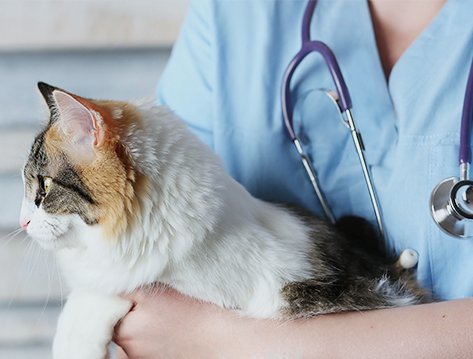When do we use ultrasound in pets?
Pet ultrasounds are a safe and commonly used way of imaging the inside of dogs, cats and other pets. They’re a non-invasive method of imaging, which use sound waves to help vets visualise a pet’s internal organs and diagnose conditions such as those affecting the heart, liver, kidneys and bladder.
An ultrasound gives us information as to whether the structure of a pet’s organ is as it should be and is functionally operating; for example to show where blood is flowing and how the heart is contracting. Ultrasound is a very safe technology for dogs and cats, as sound waves do not damage or affect the body during the procedure.
How does a pet ultrasound work?
An ultrasound machine sends sound waves into the pet’s body using a probe, which also records an echo as the sound waves touch an object. These are then reflected back into the machine and processed by a sophisticated computer algorithm which converts the sound into images of the body.
What does a pet ultrasound involve?
For most detailed ultrasound scans we will admit the pet for a full or part day. These procedures typically take 40 minutes to one hour to perform. For some procedures, such as an ultrasound scan to check if a dog or cat is pregnant, we can perform the scan during a normal consultation.
Most animals tolerate scans without any issues, but vets are sometimes required to administer your dog or cat with a light sedation to help them relax. Ultrasound waves cannot travel through air, so we need to have close contact with the pet’s skin to take an accurate scan. A vet or nurse will usually trim a patch of your pet’s fur to allow us to use a probe directly on their skin to look at the chest or abdomen.
An ultrasound scan can also help guide us to take samples. For example, if we notice an abnormal area inside a pet, we may use the ultrasound image to direct a needle to the site so we can collect a sample and have it analysed in a laboratory.
After we’ve scanned your dog or cat, the results of the scan are usually available immediately, which a veterinary surgeon will discuss with you. If we have taken samples, they are sent to a laboratory which specialises in interpreting these types of samples in dogs, cats and other animals. It is possible to wait several days before we receive the results.
How much does an ultrasound cost?
Pet ultrasounds vary in price, between £45 to £150 for dogs and cats depending on the type of scan. If samples are taken and sent to the laboratory, then there is an additional charge. During the consultation, a vet will be able to advise you on the cost in more detail. Read more about our pricing policy here.

